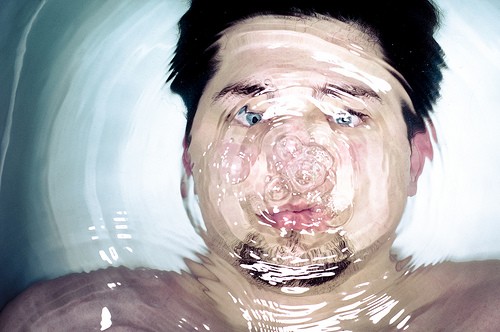Alcoholic Drinking Can Damage the Brain’s Ability to Decode Facial Expressions
Chronic heavy drinking can cause brain damage in regions of the brain needed for emotional processing, leaving alcoholics in recovery less able to interpret the emotions displayed in facial expressions.
When we look at someone with rage or love or sadness, we just assume that they “get the message” and understand the emotional information displayed in our facial expressions. This may sometimes be a false assumption.
Heavy drinkers, even some who’ve been sober for years or decades, can show brain damage in two areas of the brain required for effective emotional processing, the amygdala and the hippocampus. The deficits resulting from this brain damage impair a person’s ability to recognize emotional cues in others; diminishing skills needed for healthy and effective relationships and social functioning.
Researchers at the University of California knew that a long history of alcoholic drinking can lead to brain dysfunction in areas of memory, reasoning and emotional processing. They decided to investigate the neural level causes of the emotional processing deficits experienced by some chronic alcoholics and used functional magnetic resonance imaging technology (fMRI) to allow them vision into the brain during an emotional processing task.
The researchers procured 30 study subjects, matched for I.Q., socio-economic status, background history and schooling; 15 of which had long histories of alcoholic drinking followed by long histories of abstinence and 15 non-alcoholic control subjects.
Each study subject was rolled into an MRI machine and given a series of tasks to perform, one of which was looking at a picture of a face presented, and trying to rate that person’s intelligence.
The amygdala is a deep brain structure that evaluates facial expressions for emotional content, and the hippocampus, the brain’s center of memory, stores that emotional information for processing and use.
The researchers found (as was expected) that the amygdala and the hippocampus, two areas of the brain essential for emotional processing, became highly activated while the subjects looked at pictures of faces. Interestingly, levels of activation in these two brain areas were much higher in the non drinking control subjects. Those with a history of alcoholism showed a lesser response in the amygdala and the hippocampus while looking at pictures of faces, and an increased response in the pre frontal cortex, presumably as other areas of the brain tried to compensate for deficits in these areas of emotional processing.
The control (non alcoholic) study subjects displayed a greater variability in amygdala response, depending on the facial expression shown in a picture, whereas the amygdala response amongst the alcoholic subjects was more static – an angry looking face and a neutral looking face caused an abnormally similar amygdala response. Additionally, the alcoholics in recovery were not as able as the non-alcoholic subjects to judge the intelligence displayed in various faces
Ksenija Marinkovik, as assistant professor of radiology at the University of California, explained the study results, saying, "The neuroimaging evidence from our study suggests that deficient activation of limbic structures inside the temporal lobes – the amygdala and hippocampus – may underlie emotional difficulties in abstinent long-term alcoholics.”
The researchers caution that although they can see a clear difference between the brain activities of alcoholic in recovery subjects and control subjects that they cannot know with certainty based on their study what caused the deficits. These deficits were likely caused by the drinking, but could also have preceded the chronic drinking, or even caused it.
Marinkovik underscores the importance of the research findings, saying that deficiencies in emotional facial recognition “can result in miscommunication during emotionally charged situations and lead to unnecessary conflicts and difficulties in interpersonal relationships. The resulting negative repercussions can, in turn, contribute to increased drinking."
The full study findings can be read in the journal, Alcoholism: Clinical and Experimental Research


